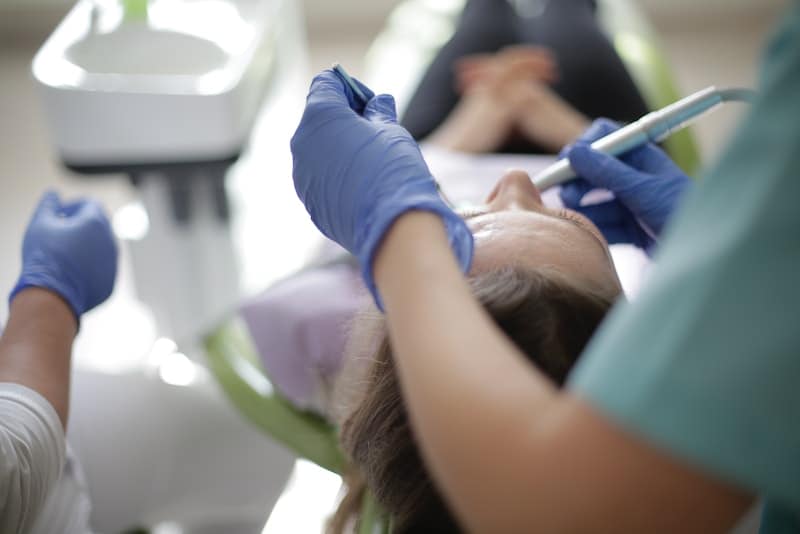Everyone with teeth is at risk for developing cavities and other dental health problems. The best way to avoid cavities from forming is with routine brushing and flossing, paired with routine visits to your dentist. Prioritizing you oral hygiene is a great way to stay on top of your overall health.
Cavity Treatment Options
According to the Mayo Clinic, regular checkups can identify cavities and other dental conditions before they cause troubling symptoms and lead to more-serious problems. The sooner you seek care, the better your chances of reversing the earliest stages of tooth decay and preventing its progression. If a cavity is treated before it starts causing pain, you probably won’t need extensive treatment.
Treatment of cavities depends on how severe they are and your particular situation. Treatment options include:
- Fluoride treatments. If your cavity just started, a fluoride treatment may help restore your tooth’s enamel and can sometimes reverse a cavity in the very early stages. Professional fluoride treatments contain more fluoride than the amount found in tap water, toothpaste and mouth rinses. Fluoride treatments may be liquid, gel, foam or varnish that’s brushed onto your teeth or placed in a small tray that fits over your teeth.
- Fillings. Fillings, also called restorations, are the main treatment option when decay has progressed beyond the earliest stage. Fillings are made of various materials, such as tooth-colored composite resins, porcelain or dental amalgam that is a combination of several materials.
- Crowns. For extensive decay or weakened teeth, you may need a crown — a custom-fitted covering that replaces your tooth’s entire natural crown. Your dentist drills away all the decayed area and enough of the rest of your tooth to ensure a good fit. Crowns may be made of gold, high strength porcelain, resin, porcelain fused to metal or other materials.
- Root canals. When decay reaches the inner material of your tooth (pulp), you may need a root canal. This is a treatment to repair and save a badly damaged or infected tooth instead of removing it. The diseased tooth pulp is removed. Medication is sometimes put into the root canal to clear any infection. Then the pulp is replaced with a filling.
- Tooth extractions. Some teeth become so severely decayed that they can’t be restored and must be removed. Having a tooth pulled can leave a gap that allows your other teeth to shift. If possible, consider getting a bridge or a dental implant to replace the missing tooth.
Cavity Prevention
Good oral and dental hygiene can help you avoid cavities and tooth decay. Here are some tips to help prevent cavities. Ask your dentist which tips are best for you.
- Brush with fluoride toothpaste after eating or drinking. Brush your teeth at least twice a day and ideally after every meal, using fluoride-containing toothpaste. To clean between your teeth, floss or use an interdental cleaner.
- Rinse your mouth. If your dentist feels you have a high risk of developing cavities, he or she may recommend that you use a mouth rinse with fluoride.
- Visit your dentist regularly. Get professional teeth cleanings and regular oral exams, which can help prevent problems or spot them early. Your dentist can recommend a schedule that’s best for you.
- Consider dental sealants. A sealant is a protective plastic coating applied to the chewing surface of back teeth. It seals off grooves and crannies that tend to collect food, protecting tooth enamel from plaque and acid. The Centers for Disease Control and Prevention (CDC) recommends sealants for all school-age children. Sealants may last for several years before they need to be replaced, but they need to be checked regularly.
- Drink some tap water. Most public water supplies have added fluoride, which can help reduce tooth decay significantly. If you drink only bottled water that doesn’t contain fluoride, you’ll miss out on fluoride benefits.
- Avoid frequent snacking and sipping. Whenever you eat or drink beverages other than water, you help your mouth bacteria create acids that can destroy tooth enamel. If you snack or drink throughout the day, your teeth are under constant attack.
- Eat tooth-healthy foods. Some foods and beverages are better for your teeth than others. Avoid foods that get stuck in grooves and pits of your teeth for long periods, or brush soon after eating them. However, foods such as fresh fruits and vegetables increase saliva flow, and unsweetened coffee, tea and sugar-free gum help wash away food particles.
- Consider fluoride treatments. Your dentist may recommend periodic fluoride treatments, especially if you aren’t getting enough fluoride through fluoridated drinking water and other sources. He or she may also recommend custom trays that fit over your teeth for application of prescription fluoride if your risk of tooth decay is very high.
- Ask about antibacterial treatments. If you’re especially vulnerable to tooth decay — for example, because of a medical condition — your dentist may recommend special antibacterial mouth rinses or other treatments to help cut down on harmful bacteria in your mouth.
- Combined treatments. Chewing xylitol-based gum along with prescription fluoride and an antibacterial rinse can help reduce the risk of cavities.
Prioritize Your Dental Health
A healthy life starts with a healthy smile. Neglecting to take care of your dental health can lead to painful, expensive, and irreversible damage to your smile. Our dentists Dr. Brian L. Porter or Dr. Kelley Joo, work with patients to help them take charge of their dental health. Schedule your dental check-up by reaching out to Brian L. Porter, DDS at 281-422-3415 today.
Brian L. Porter, DDS
1109 E. James Ave.
Baytown, TX 77520
281-422-3415
View our Google Business Listing

